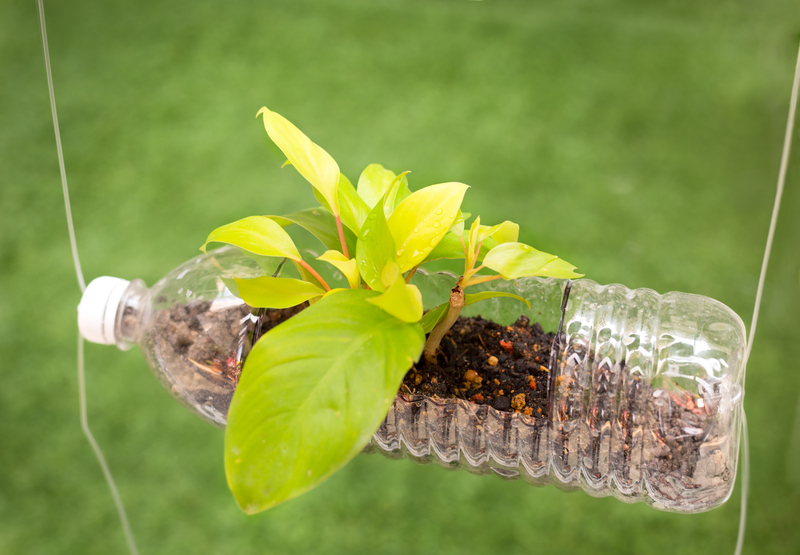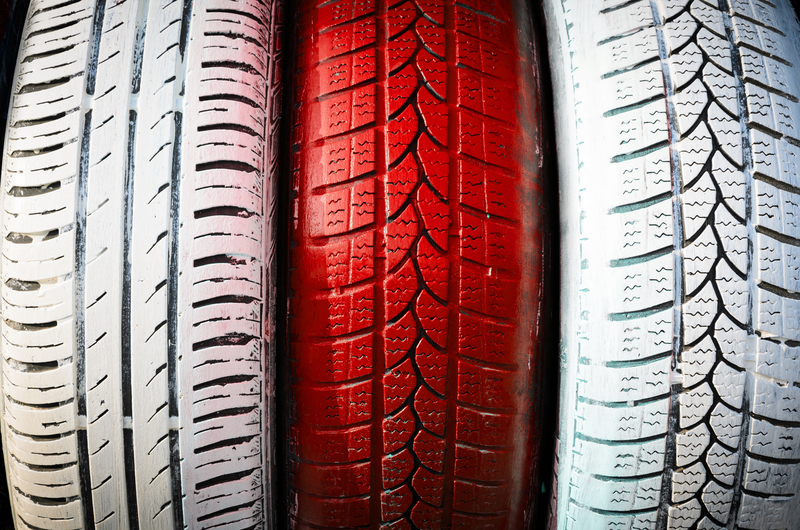How You Can Make a Difference with Responsible PPE Waste Disposal
The COVID-19 pandemic highlighted the critical importance of personal protective equipment (PPE) in keeping people safe. However, as the use of PPE surged around the globe, so did the challenge of managing the resulting waste. Improper PPE disposal creates serious health and environmental hazards. By practicing responsible PPE waste disposal, every individual can contribute to a healthier planet and safer communities. In this comprehensive guide, we'll explore ways you can make a meaningful difference through mindful PPE disposal, the impact of PPE waste, and actionable steps to incorporate best practices into your daily routine.
Understanding PPE and Its Impact on the Environment
What is PPE?
PPE stands for Personal Protective Equipment. It includes a range of items designed to protect individuals from infections, chemical exposures, and physical injuries. Key examples include:
- Face masks (disposable and reusable)
- Gloves (nitrile, latex, vinyl)
- Face shields & goggles
- Gowns & aprons
- Shoe covers & hair caps
Why Is PPE Waste a Problem?
Improper PPE waste disposal harms both our environment and public health. Consider these compelling facts:
- Globally, billions of single-use masks and gloves are disposed of monthly.
- PPE litter pollutes streets, parks, waterways, and oceans, harming wildlife.
- Most PPE is made from non-biodegradable plastics like polypropylene or PVC. These materials can take hundreds of years to decompose.
- PPE waste in the wrong place can spread germs or hazardous chemicals.
- Many waste management systems are not equipped to handle the sudden surge in PPE waste.
The Hidden Costs of Irresponsible PPE Disposal
When individuals do not practice responsible PPE disposal, it can have serious long-term consequences:
- Environmental Pollution: Masks and gloves break down into microplastics, contaminating soil and water.
- Wildlife Threat: Animals can mistake masks for food or become entangled, often fatally.
- Disease Transmission: Used PPE can carry infectious agents, putting sanitation workers and the public at risk.
- Visual Pollution: Littered PPE degrades the aesthetic value of cities and natural areas.

Why Responsible PPE Waste Disposal Matters
Proper PPE disposal is about more than keeping spaces tidy--it's a matter of public health, environmental protection, and social responsibility. By learning how to dispose of PPE responsibly, you significantly reduce the environmental and health risks associated with PPE waste.
Benefits of Responsible PPE Disposal
- Prevents Contamination: Reduces the spread of viruses, bacteria, and harmful chemicals.
- Protects Wildlife: Prevents animals from ingesting or becoming trapped in disposable PPE.
- Decreases Landfill Volume: When you recycle or use reusable PPE, less plastic ends up in landfills.
- Fosters Community Responsibility: Setting an example encourages others to follow good disposal practices.
- Promotes Sustainability: Responsible actions today contribute to a healthier tomorrow.
How Individuals Can Make a Difference with PPE Waste Disposal
While governments and industries are critical in managing large-scale waste, individuals can make a powerful impact by adopting better PPE waste disposal practices. Here's how:
1. Know What Is and Isn't Recyclable
- Most disposable masks, gloves, and gowns are NOT recyclable in regular municipal programs. These items should go in general waste, as they may be contaminated.
- Reusable PPE such as washable cloth masks are a more eco-friendly alternative.
- Some companies and local governments sponsor special recycling for PPE. TerraCycle and similar programs provide specific bins for mask and glove recycling.
2. Proper Disposal Methods for PPE Waste
- Do not litter: Always place used masks and gloves in sealed bags before discarding them in bins.
- Use separate bins: If available, dispose of PPE in specially marked "hazardous waste" or "PPE only" containers.
- Secure your trash: Tie garbage bags securely to prevent masks and gloves from blowing out.
- Do not flush PPE: Never flush masks, gloves, or wipes down the toilet--they cause clogs and harm water systems.
- Wash hands after disposal: Always wash or sanitize hands after handling used PPE.
3. Choose Reusable or Eco-Friendly PPE Whenever Possible
- Cloth Masks: Opt for multi-layer, washable face coverings that can be cleaned and used many times.
- Some companies now make biodegradable masks from plant fibers or renewable materials. Look for certified products.
- When using disposable PPE is unavoidable (e.g., medical settings), make sure to always follow proper disposal protocols.
4. Participate in Community PPE Clean-Up Efforts
- Join or organize local PPE litter pick-up initiatives to keep public spaces clean and safe.
- Report overflowing PPE disposal bins to local authorities.
- Encourage businesses, schools, and workplaces to provide clearly marked bins for PPE waste.
5. Spread Awareness About Responsible PPE Waste Disposal
- Educate friends, family, and colleagues about the importance of proper PPE disposal.
- Share informative posts on social media using hashtags such as #PPEwaste, #ProtectOurPlanet, and #ResponsibleDisposal.
- Advocate for local initiatives in your community to support responsible PPE waste management.
How Businesses and Organizations Can Encourage Responsible PPE Disposal
Businesses, educational institutions, and healthcare facilities are major users of PPE. By leading the way in sustainable PPE practices, they can set a positive example for staff, clients, and the wider community.
1. Provide Clearly Marked PPE Disposal Points
- Install dedicated PPE bins in high-traffic areas, especially entrances, exits, and restrooms.
- Ensure bins have lids and clear signage in multiple languages.
2. Implement PPE Waste Reduction Policies
- Encourage the use of reusable PPE where possible (e.g., cloth masks for non-clinical staff).
- Train staff on proper PPE use and disposal protocols.
- Partner with local recycling programs to handle PPE waste responsibly.
3. Offer Education and Training
Educate staff, students, and visitors about the importance of responsible PPE disposal. Provide regular reminders and updated best practice guidelines.
The Future of PPE Waste Management: Innovation & Sustainability
The global demand for PPE is likely to remain robust in various industries. However, ongoing innovation in product design and waste management is helping reduce the long-term environmental footprint.
Emerging Solutions in PPE Disposal
- Biodegradable PPE: Engineers and scientists are developing masks, gloves, and face shields from biodegradable polymers, bamboo, and other renewable resources.
- Dedicated PPE Recycling Programs: Companies like TerraCycle and Medcare are offering specialized recycling for PPE, diverting tons of waste from landfills and turning used materials into plastic lumber and other products.
- Energy Recovery: Some incineration facilities safely convert PPE waste to energy, though this approach must be managed to minimize emissions.
What You Can Do to Support Innovation
- Support businesses that use or produce eco-friendly PPE options.
- Participate in take-back programs and pilot recycling schemes in your area.
- Advocate for more stringent regulations and incentives for PPE innovation and responsible disposal.
Practical Tips: Incorporating Responsible PPE Disposal Into Your Daily Life
Making responsible PPE waste disposal a habit can seem daunting, but small, mindful actions quickly add up to significant change.
Checklist for Responsible PPE Disposal at Home and Work
- Before using PPE: Choose reusable items whenever possible. If you must use single-use PPE, buy only what's necessary to reduce waste.
- After using PPE: Remove carefully. Avoid touching the outside of masks and gloves. Dispose of immediately in a sealed bag or bin.
- Don't mix PPE with recyclables: Used PPE does not belong in regular recycling. It may contaminate the recycling stream.
- Educate your household or colleagues: Discuss the importance of safe PPE disposal with others.
- Support local policy: Ask local governments and businesses to add PPE bins and enforce no-littering policies.
- Sanitize hands: Always wash or sanitize your hands after disposing of PPE or handling waste bins.
What To Do If You Find Littered PPE
- Wearing gloves, pick up the waste carefully and place it in a sealed trash bag.
- If available, use a litter picker or other tool rather than bare hands.
- Wash your hands thoroughly after picking up littered PPE.
- Report areas with consistent PPE littering to local authorities or community groups.

Frequently Asked Questions (FAQ) on PPE Waste Disposal
Can I recycle disposable masks and gloves?
No. Most disposable masks and gloves are made from complex plastics and cannot be recycled in regular municipal programs. Specialized recycling programs may accept these items--check for local options. Never place used PPE in the recycling bin unless directed by a specific program.
What should I do with cloth masks?
Washable cloth masks should be washed regularly per manufacturer instructions and reused. When their useful life ends, cut the elastic and dispose of them in the trash, or, if possible, recycle the fabric according to local textile recycling guidelines.
Is burning PPE waste at home safe?
No. Burning PPE at home releases toxic chemicals into the air and is a health hazard. Always dispose of used PPE in accordance with local waste management regulations.
Can PPE be composted?
Most standard PPE (like masks and gloves) can not be composted, as they contain plastics and synthetic fibers. Only certified biodegradable PPE products made from natural materials can be safely composted--always check the manufacturer's information before attempting composting.
Conclusion: Your Role in Responsible PPE Waste Disposal
The choices you make about personal protective equipment waste disposal impact not only your surroundings but also global environmental and public health. By knowing how and where to dispose of used PPE, choosing sustainable alternatives, and encouraging others to do the same, you're making a real difference.
Let's work together to build a cleaner, safer, and more resilient world. Your responsible actions today create a healthier tomorrow for generations to come.
Remember: Every mask, glove, or item of PPE that's disposed of responsibly is a step toward a safer planet. Make responsible PPE waste disposal a part of your daily routine--and inspire others to do the same!